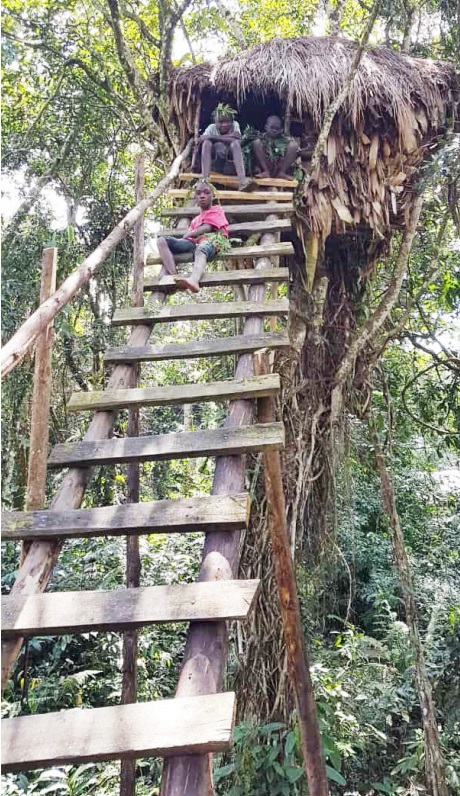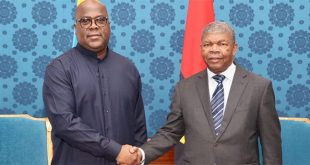
COVID-19 has hit ethnic minorities too
Kokunda’s concerns are valid according to the Minority and Indigenous Trends 2021 report which was recently published by the Minority Rights Group International (MRG), a London-based human rights organisation that works to secure the rights of ethnic, religious and linguistic minorities and indigenous people around the world.
According to the report published last month, the ongoing Covid-19 pandemic is devastating the quality of livelihoods of minority and indigenous communities in Africa and around the world.
Often marginalised and treated as afterthoughts in mainstream national decision making, minority and indigenous communities are seeing the global pandemic worsen their access to decent jobs, quality healthcare and education, dignified housing and other social and economic needs, notes the report.
In Uganda and Rwanda, for instance, among the Batwa, Mbuti and Baka minority, Covid-19 is worsening long standing discrimination against these communities. The meagre income earned from tourism through the sale of handicrafts and pottery dried up fast with lockdowns. To add salt to injury, these communities were ignored in social protection measures such as distribution of foodstuff.
The report also reflects how the legacy of landlessness and dispossession has affected every aspect of their lives, from health and livelihoods to participation and well-being, long before the pandemic began.
The plight of forest peoples in Rwanda, Uganda and other countries across Central Africa illustrates the need for tailored, accessible and culturally appropriate interventions in the midst of a pandemic, the report notes.
In Ghana, the lockdown led to the loss of livelihoods for already struggling Liberian former refugees in the country which made the lives of this vulnerable group even more precarious, after Ghana ceased legal recognition of their status as refugees over a decade ago.
“Ghana adopted a range of policies that appeared to prioritise citizens over non-citizens, whose plight was often overlooked. In this context, former Liberian refugees, who were now only protected under restrictive rights to work, fell through the cracks, as the government enforced strict immigration laws and restricted freedom of movement, resulting in crackdowns on migrants and widespread loss of livelihood,” notes the report.
In Sudan, the refugee situation in the country has become more complicated with the pandemic, with one million Ethiopians fleeing to Sudan to escape the armed conflict in Ethiopia’s Tigray region. This has put further stress on the health and other humanitarian facilities in the refugee host communities in Sudan.
South Africa, which had one of the strictest lockdowns in Africa, has seen a re-emergence of xenophobic attitudes towards nationals of other countries living in the country. Dealing with biting unemployment and underemployment, many South Africans often blame nationals of other African countries for stealing their opportunities.
The report notes that in the wake of COVID-19, it is impossible to ignore the profound exclusion of many populations from the right to health, and the dangers that this poses not only to the communities directly affected but the world as a whole.
“There is need to promote land rights, environmental protection and access to green space to support resilience and recovery during the pandemic, as well as prevent future crises.”
“While land grabbing and deforestation have increased around the globe, community-led conservation and engagement in the natural world have the potential to improve social and environmental well-being,” notes the report.
Agnes Kabajuni, MRG’s Africa Regional Manager says as African countries continue to battle Covid-19, authorities should ensure minority and indigenous communities are not left behind. Kabajuni told The Independent in an email interview that the government needs to specifically reach out to the most marginalised ethnic minorities like the Batwa.
“First, they must be represented on the COVID-19 Task Force in the districts where they are found to avoid discrimination in accessing support, secondly specific attention should be on accessing basic health care services, and education of their children.”
“For example the majority of the Batwa people may not have radio/TVs to get updates on the COVID-19 situation, they may not get work (labour) as they are accused of nomadism and thus easy to contract or infect other with COVID-19 and might face exclusion government targeted assistance for vulnerable communities.”
Kabajuni told The Independent that Uganda’s minority communities are not all at the same level of vulnerability and therefore their needs differ and government need to document such with supportive data.
While the Karimojong, the Basongora and Batwa are communities considered indigenous and ethnic minorities, their way of life, identity, culture, economic livelihoods and attachment to the territories they live in or lived in (Batwa/Basongora lost their origin place) and their continued threat to their survival as a people, puts them at risk of exclusion, lack of representation and discrimination.
Kabajuni said others like the Maragoli people critically need to be legally recognised as an indigenous community and identification documents released to them so as to enable them access services on equal basis as others. On the other hand, the Batwa and Benet need to be compensated for the lost lands as a result of conservation and or resettled once and for all.
The Basongora and Banyabindi need to be resettled as promised by government for land lost during colonial times to various government institutions in Kasese and conservation of Queen Elizabeth national park.
The Bagabo want government to immediately recognize them as one of the indigenous communities of Uganda excluded from the third national schedule, but also want the government to discuss with them and reach consensus on fishing rights which is part of their cultural identity and livelihoods. Kabajuni adds that although the Acholi are not a minority or indigenous population, they are mentioned in the report as a community at risk.
“My take is that the Acholi people are a community still recovering from the impact of 23 years under the Lord’s Resistance Army conflict and most of the communities are living under high levels of poverty compared to poverty levels elsewhere in the country.”
“It is incumbent upon authorities to recognise that the ongoing Covid-19 pandemic is affecting already marginalised minorities and indigenous communities. Measures aimed at combating the pandemic therefore, should not exacerbate such marginalization, but rather address them.”
However, Sam Kajojo, the LCV Chairperson for Kanungu District told The Independent on July 8 that the leadership in his district has indeed recognised the challenges the Batwa community faces.
“This (recognition) is seen in the continuous engagement the district leadership has with the community,” he said.
“Due to this engagement, the Batwa in Kanungu are perhaps the most educated among the larger Batwa community in Uganda. They are slightly ahead compared to the rest of the Batwa in the region.”
Kajojo told The Independent that, thanks to one longstanding programme spearheaded by the Kinkizi Diocese, the Batwa have diplomas, degrees and Master’s level education.
Kokunda is in fact among the beneficiaries of this initiative. Despite the hurdles in her community, she has risen to become one of the most educated Batwa (she holds a Master’s in Organisation Leadership from Uganda Christian University, Mukono) thanks to her benefactor—the Diocese of Kinkizi—which has been running a community development programme in Kanungu District.
In 2017, Kokunda started the community organisation to give hope to her community. Her organisation started as an awareness creation campaign engineered by the Batwa youth based on their experience of the series of political, social, economic, cultural, environmental injustices and suffering their community has continued to face for decades.
Kajojo told The Independent that among other initiatives that the Batwa are benefiting from is the Mgahinga-Bwindi Impenetrable Forest Conservation Trust which was also set up to partly support the Batwa who live around this park to have cultural groups that entertain tourists.
“This February, we had a meeting to see the missing gaps and the challenges they continue to face so we see how best to meet their needs. We are committed to see that the Batwa get access to health, education and other welfare needs.”
“We are trying to engage the wider community, telling them that these are our own people and we need to help each other to grow. We need to get them health centres within their settlements.”
“We are encouraging those who have attained an education to come and stand for elective political positions starting at the sub-county level where they can have direct input in the sub-county development priorities.”
The Batwa are certainly among our district planning priorities, Kajojo said. But Kokunda told The Independent that this will not suddenly turn around the Batwa people’s lives.
“We want affirmative action from the national government,” she said, “Having a Mutwa MP or even direct representation at the district level would be a good start.”
****
 The Independent Uganda: You get the Truth we Pay the Price
The Independent Uganda: You get the Truth we Pay the Price


